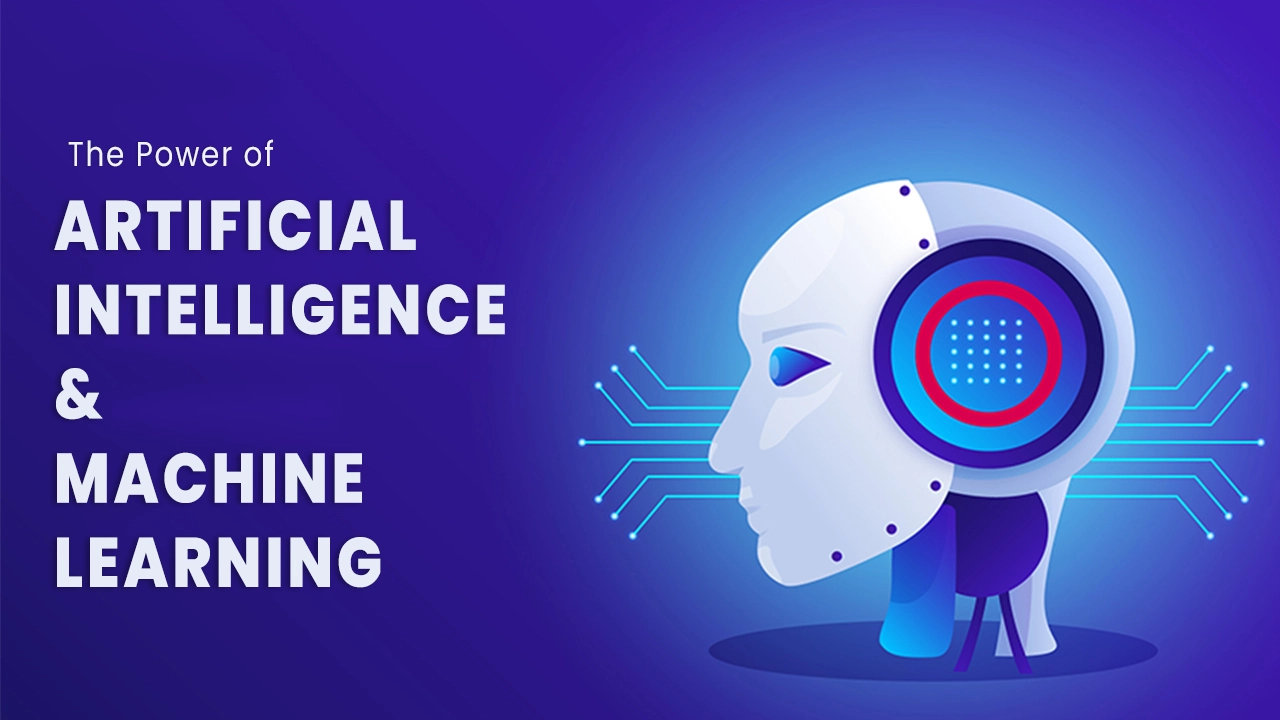
The Role of AI and Machine Learning in Network Security.
AI and Machine Learning in Cybersecurity: The Role of AI
In today’s interconnected digital landscape, cybersecurity stands as a critical pillar in safeguarding our technological ecosystem. As cyber threats become increasingly sophisticated, the integration of AI and machine learning into cybersecurity strategies emerges as a beacon of hope. Artificial intelligence, with its advanced capabilities, offers groundbreaking solutions to fortify defenses against potential threats, ensuring the security of organizations worldwide. Teamwin Global Technologica is dedicated to exploring the role of AI in enhancing threat detection and network security, empowering clients with robust cybersecurity measures.
Understanding Cybersecurity and Its Challenges
Defining Cybersecurity
Cybersecurity refers to the practice of protecting systems, networks, and programs from digital attacks. These cyber threats aim to access, alter, or destroy sensitive information, extort money from users, or disrupt normal business operations, highlighting the need for robust cybersecurity systems. The role of AI and machine learning in cybersecurity is pivotal for developing effective cybersecurity solutions., as these technologies enable more precise threat intelligence and detection capabilities. By harnessing AI models and machine learning algorithms, security professionals can improve their security posture, ensuring that their infrastructure remains secure and resilient against potential breaches.
Common Cyber Threats
Common cyber threats pose significant risks to network security, demanding proactive cybersecurity strategies. These threats include:
- Malware
- Phishing
- Ransomware
- Man-in-the-middle attacks are a significant concern for cybersecurity solutions.
The integration of AI and ML in cybersecurity provides enhanced threat detection and response. AI systems can analyze vast amounts of data, identifying patterns and anomalies that may indicate a security incident, thereby enhancing the effectiveness of security solutions. This empowers security teams to anticipate and mitigate cyber risks swiftly, preventing potential damage and ensuring the overall security of their organization.
The Importance of Network Security
Network security is the cornerstone of a robust cybersecurity framework. It involves implementing measures to protect the usability and integrity of network and data. Several components play a crucial role in ensuring network security, including the implementation of traditional security measures alongside modern AI-driven solutions.
- Structured cabling systems are essential for reliable network connectivity, serving as the backbone of secure communication channels.
- The use of AI and machine learning in cybersecurity bolsters network security by monitoring network traffic for unusual activity, making it easier for cybersecurity professionals to respond quickly.
By employing AI algorithms and deep learning techniques, organizations can enhance their cybersecurity defense, ensuring that their networks remain protected against emerging threats.
The Role of AI and Machine Learning in Cybersecurity
Introduction to AI and Machine Learning
Artificial intelligence and machine learning are revolutionizing the landscape of cybersecurity. AI, with its ability to mimic human intelligence, and machine learning, which leverages data-driven models to improve decision-making, are pivotal in combating cyber threats and helping security teams effectively respond. These technologies enable organizations to not only detect but also predict potential security incidents with unprecedented accuracy. By utilizing AI models and machine learning algorithms, security professionals can enhance their cybersecurity strategies, ensuring that digital infrastructures are fortified against increasingly sophisticated cyber threats. Teamwin Global Technologica remains at the forefront, empowering its clients through these advanced technologies to safeguard their enterprises.
Enhancing Threat Detection with AI
In the realm of threat detection, AI and machine learning are game-changers. AI systems analyze vast amounts of data to identify patterns that signify potential cyber threats, thus offering a proactive approach to cybersecurity. By integrating AI and ML techniques, organizations can significantly enhance their threat detection capabilities. Here are some key contributions of AI in this field:
- Real-time Dark Web monitoring and advanced cybersecurity measures, as exemplified by TeamWin, ensure a robust defense against emerging threats, showcasing the role of AI and ML.
- Managing threats proactively through sophisticated threat intelligence and management systems, securing your business environment from evolving cyber threats.
AI and ML in Network Security
Network security is a critical component of a comprehensive cybersecurity defense strategy, and the integration of AI and machine learning is transforming how organizations protect their networks. AI algorithms scrutinize network traffic to detect anomalies, ensuring secure communication channels and data integrity. With deep learning techniques, security teams can anticipate and mitigate cyber risks before they escalate into full-blown security incidents. Teamwin Global Technologica assures that your network is secure and resilient, utilizing AI and ML to create a proactive security posture that adapts to the dynamic nature of cyber threats and provides peace of mind to its clients.
Applications of AI in Cybersecurity
AI-Driven Cybersecurity Tools
AI-driven cybersecurity tools represent a significant advancement in the fight against cyber threats. Teamwin Global Technologica leads the charge with enterprise-grade, AI-driven next-generation firewalls that fortify network security. By integrating sophisticated AI systems, these firewalls, including top-tier solutions like FortiGate, Sophos, and Checkpoint, provide robust defenses against unauthorized access and enhance overall security measures. Additionally, Teamwin Global Technologica enhances endpoint security through advanced security tools such as SentinelOne and Crowdstrike. These tools leverage AI models and machine learning algorithms to detect and neutralize threats, safeguarding your enterprise with unparalleled precision and reliability, and helping security teams stay ahead of potential attacks.
Threat Intelligence and AI
Threat intelligence is essential for organizations to preemptively address potential security breaches. powered by AI is revolutionizing how organizations anticipate and respond to cyber threats. AI systems are capable of processing vast amounts of data, identifying patterns and anomalies that might escape human scrutiny. Through supervised learning and other advanced techniques, AI can predict potential security incidents, enabling proactive threat management. This empowers security teams to act swiftly, mitigating risks before they escalate. The role of artificial intelligence in cybersecurity is not only about identifying threats but also about enhancing overall security posture. By integrating AI in cybersecurity strategies, organizations can ensure robust defenses and peace of mind.
Case Studies of AI in Cyber Defense
Real-world case studies highlight the transformative role of AI in cybersecurity defense. Organizations across industries have successfully implemented AI-driven solutions to bolster their cybersecurity measures. These case studies demonstrate the efficacy of AI in threat detection, network security, and incident response. By utilizing machine learning models and AI algorithms, businesses have effectively mitigated risks, minimized breaches, and safeguarded sensitive data. These success stories underscore the value of AI in cybersecurity, inspiring others to adopt these technologies. Teamwin Global Technologica remains committed to empowering its clients with cutting-edge AI solutions and security measures, ensuring their infrastructure is secure and resilient.
Future of AI and Machine Learning in Cybersecurity
Emerging Trends in AI and ML
The future of cybersecurity is heavily influenced by emerging trends The integration of AI and machine learning is critical in developing advanced cybersecurity solutions.. As these technologies evolve, they continue to reshape the cybersecurity landscape, offering innovative solutions to complex challenges. From enhanced threat detection capabilities to predictive analytics, AI and ML drive significant advancements in cybersecurity strategies. Organizations are leveraging these trends to improve their security posture, utilizing AI systems to anticipate and counteract cyber threats effectively. The integration of AI and ML in cybersecurity is not just a trend but a necessity, ensuring that businesses can adapt to and thrive in an ever-evolving digital environment.
Challenges and Limitations of AI in Cybersecurity
Despite the promising capabilities of AI in cybersecurity, challenges and limitations persist. The complexity of AI systems and the need for vast amounts of data for training pose significant hurdles to implementing effective security solutions. Additionally, the potential for AI algorithms to be exploited by malicious actors adds a layer of risk. Security professionals must navigate these challenges to maximize the benefits of AI in cybersecurity defense and implement effective security measures. Ensuring transparency, ethical use, and continuous improvement of AI models are critical for overcoming these limitations. As AI and machine learning continue to play a pivotal role in cybersecurity, addressing these challenges will be essential for sustainable success.
The Road Ahead for Cybersecurity Defense with AI
The road ahead for cybersecurity defense with AI is paved with opportunities and challenges. As AI and machine learning technologies advance, they will continue to redefine cybersecurity measures, offering powerful tools for threat intelligence and incident response. Organizations must embrace these innovations, integrating AI-driven solutions to enhance their security posture. The role of AI in cybersecurity will be increasingly crucial, ensuring robust defenses against ever-evolving threats. Teamwin Global Technologica is dedicated to leading this charge, providing its clients with state-of-the-art AI solutions that safeguard their enterprises, ensuring tomorrow’s success and security.
What is the role of artificial intelligence in cybersecurity?
The role of artificial intelligence in cybersecurity is to enhance security measures by automating threat detection and response. AI algorithms analyze vast amounts of data to identify patterns that signify potential threats, allowing organizations to react swiftly to emerging cyber threats.
How can machine learning be used to improve network security?
Machine learning can be used to analyze network traffic patterns and detect anomalies that may indicate a security breach. By continuously learning from new data, machine learning models can adapt to evolving cyber threats, providing enhanced cybersecurity solutions.
What are the benefits of using AI and ML in cybersecurity?
Using AI and ML in cybersecurity offers several benefits, including faster threat detection, improved accuracy in identifying vulnerabilities, and the ability to process large volumes of threat intelligence data. These technologies can significantly reduce the workload of security analysts by automating routine tasks.
How does the future of AI in cybersecurity look?
The future of AI in cybersecurity is promising, as advancements in machine learning and AI technologies will enable more sophisticated threat detection and mitigation strategies. As cyber threats become more complex, the integration of AI will be crucial in developing effective cybersecurity tools.
What role does machine learning play in threat detection?
Machine learning plays a significant role in threat detection by utilizing algorithms that can analyze and interpret data to predict potential security breaches. By leveraging machine learning, organizations can proactively identify and respond to threats before they result in significant damage.
Can AI help in enhancing security measures?
Yes, AI can help enhance security measures by providing real-time insights into network vulnerabilities and automating responses to detected threats. This proactive approach can significantly reduce the risk of cyber attacks and improve overall security posture.
What limitations does AI have in cybersecurity?
While AI has the potential to transform cybersecurity, it also has limitations. AI systems can generate false positives, require substantial amounts of data to train effectively, and are vulnerable to adversarial attacks that exploit vulnerabilities in machine learning models. Recognizing these limitations is essential for implementing effective AI-driven security solutions.
How are learning models trained for cybersecurity applications?
Learning models for cybersecurity applications are trained using data that reflects network traffic patterns and historical threat intelligence data. This training allows the models to recognize normal behavior and identify anomalies that may indicate security threats, helping to enhance the effectiveness of cybersecurity defenses.






